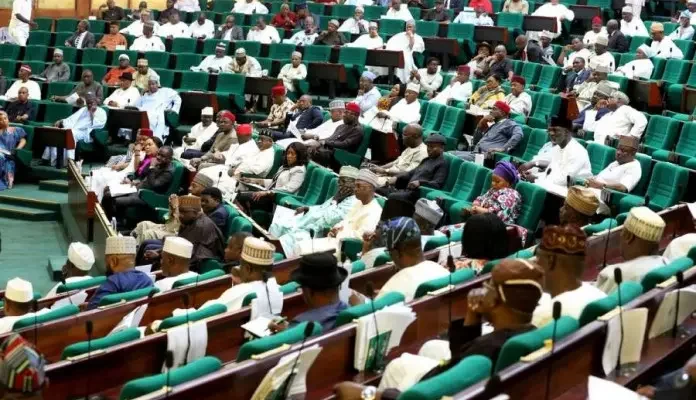586
By Tracy Moses
The House of Representatives has ordered the Nigeria Customs Service (NCS) to discontinue the collection of the controversial Comprehensive Import Supervision Scheme (CISS) levy starting June 30, 2025.
This directive was issued on Monday in Abuja by the Chairman of the House Committee on Customs and Excise, Hon. Leke Abejide (ADC, Kogi), during the joint session on the 2024 budget performance review and the defence of the agency’s proposed ₦6.58 trillion budget for 2025.
Abejide also revealed that a joint meeting involving the House and Senate Committees on Customs and Excise, alongside the Minister of Finance and Economy, Mr. Wale Edun, has been scheduled for Wednesday.
On behalf of the committee, Abejide expressed concern over the Customs’ inability to fully cover personnel expenses, overheads, and capital projects, despite exceeding its revenue target for the 2024 fiscal year.
“This Committee is aware that the CISS is not backed by any legislation in Nigeria. It does not exist in the Laws of the Federation, and even the 7% cost of collection you operate under lacks legal grounding,” Abejide declared.
He further pointed out that from January to December 2024, the Customs received no revenue from 60% of the 1% CISS levy, which was expected to fund operational expenses. He also questioned payments made to Web Fontaine Limited, the automation service provider, despite Customs reportedly taking over most of the company’s responsibilities.
“Why has the 60% share of the CISS not been accessed? The only recognized and legally established revenue stream under the Nigeria Customs Service Act, 2023, is the 4% Free-On-Board (FOB), clearly outlined in Section 18(1a) of the Act as gazetted on June 9, 2023,” he said.
The legality of the CISS levy came under further scrutiny when Hon. Awaji-Inombek Abiante (PDP, Rivers) sought clarification on its origins. He asserted that the policy was a military-era initiative with no legislative endorsement.
“I want to understand why you continue to enforce an illegal 1% charge. It is not a product of any Act of Parliament and cannot be justified in a democracy,” Abiante argued.
Responding, the Comptroller General of Customs, Adewale Adeniyi, said the Service had anticipated the debate since the previous year but had postponed stakeholder engagements. “We’re currently working on stakeholder sensitisation,” he stated. “As for the CISS, we didn’t receive any funds from the 1% this year.”
Interrupting the response, Abejide issued a stern warning: “You must cease collecting the CISS by the end of June 2025. The only legal collection is the 4% FOB approved by the President. This directive is not negotiable—we will pursue legal action if necessary.
“This is a democracy. Any attempt to collect the levy from July 1 will be met with full legal consequences. Refer to what the President signed into law in Section 18(1a). This House will not tolerate further illegality.”
Speaking on the agency’s performance for the outgoing fiscal year, Abejide expressed surprise over the underfunding of key expenditure lines, despite surpassing revenue expectations.
“Your personnel performance stands at 43.53%, overhead at 46.34%, and capital projects at 45.68%. This is despite exceeding your 2024 revenue target of ₦5.08 trillion by over ₦1 trillion, raking in ₦6.11 trillion, a 20.21% increase,” he said.
He questioned how the Service could fail to meet its operational obligations despite the significant revenue surplus.
On strategies for improved revenue mobilisation, CG Adeniyi said efforts to enhance trade facilitation and curb smuggling were being intensified.
“Accelerated clearance of goods and stable exchange rates will enhance trade. We are recommending the reintroduction of excise duties on telecommunications and single-use plastics. Also, a review of government’s tax expenditure framework is necessary to reduce its negative revenue impact,” he said.
Adeniyi added that the Service would strengthen its anti-smuggling operations and prioritize staff development through training and recruitment to boost efficiency, intelligence gathering, and manpower capacity, ultimately enhancing revenue outcomes.



